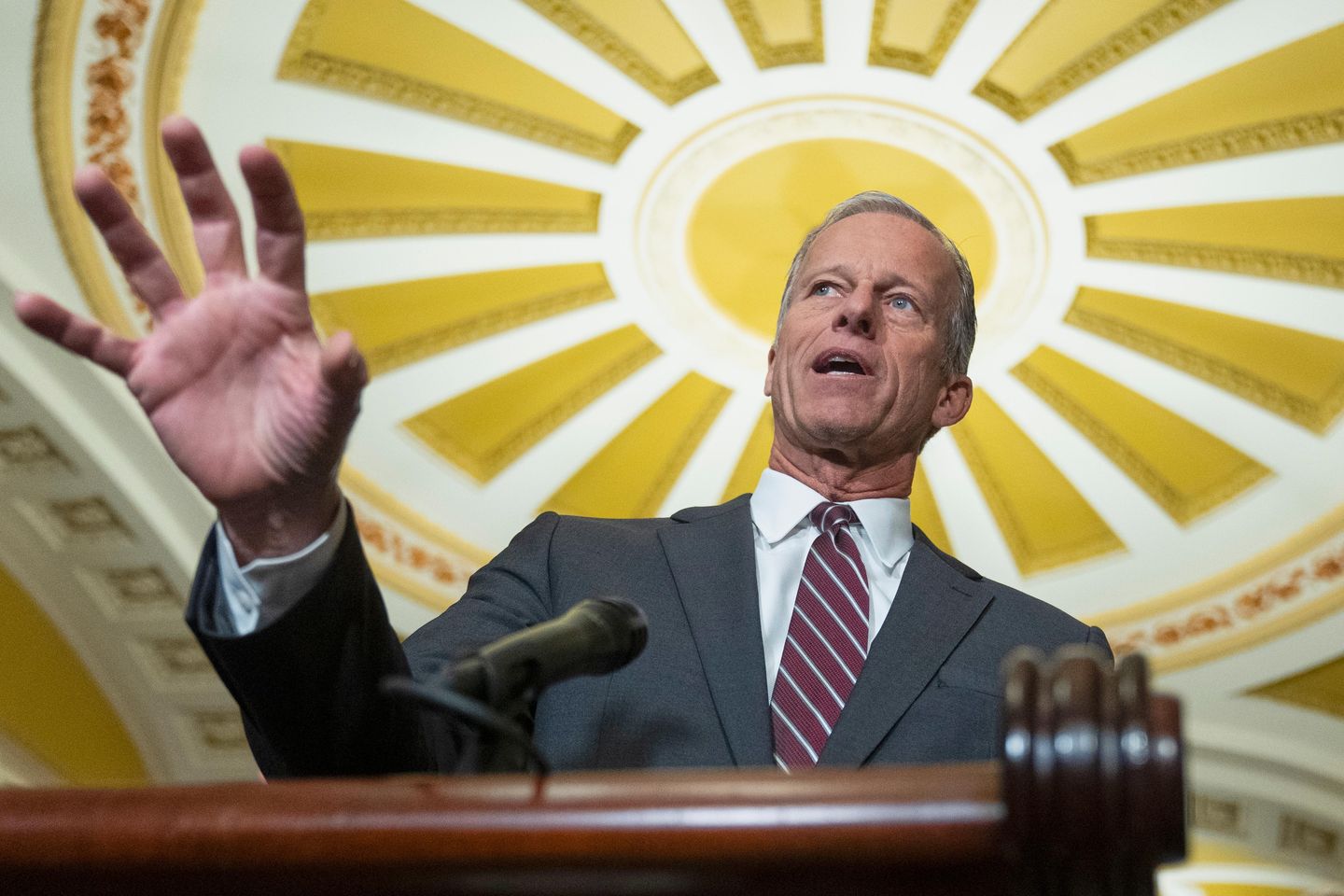
The nonpartisan Senate official in charge of enforcing the chamber’s rules has thrown a wrench in Republicans’ plans to make states share in the cost of food stamp benefits if they have high payment error rates.
The Senate parliamentarian, Elizabeth MacDonough, has ruled that the change is not in compliance with the Senate’s rules for budget reconciliation, the process Republicans are using to advance President Trump’s One Big Beautiful Bill without the threat of a Democratic filibuster.
It’s one of several rulings Ms. MacDonough and her office have issued in recent days that are likely to reshape the GOP’s sweeping tax cut and spending package, which Senate Republicans hope to vote on next week.
The Senate parliamentarian’s office determines if provisions in a package adhere to the Byrd Rule, named after the late Sen. Robert Byrd of West Virginia. The Byrd rule says policy changes made in reconciliation must have more than a “merely incidental” impact on the federal budget — meaning the primary goal must be to shift federal spending or revenues, not reform policy.
The Senate parliamentarian doesn’t publicly share her decisions. The Senate Budget Committee Democrats have announced which provisions she has ruled out of compliance but have not shared her full rationale.
Senate Republicans included a proposal in the bill to save tens of billions of dollars in federal spending on the Supplemental Nutrition Assistance Program, formerly known as food stamps. It would have required states to cover 5% to 15% of the costs of SNAP benefits if they have high rates of overpayments and underpayments, known as error rates.
Ms. MacDonough found the SNAP cost-sharing proposal violates the Byrd rule, perhaps because the proposal is designed to incentivize states to lower their error rates more than it’s structured directly to cut federal spending.
She also found a provision largely limiting SNAP eligibility to U.S. citizens and permanent residents does not comply with the Byrd rule.
Her rulings mean Republicans will need to remove the provisions from the budget reconciliation package, modify them into compliance with the Byrd rule or bring the legislation to the floor as is and face a budget point of order that requires 60 votes, and thus Democratic support, to waive.
Senate Republicans could override the parliamentarian with a simple-majority vote, but most view that as a nuclear option akin to gutting the filibuster. It’s a move that Senate Majority Leader John Thune, South Dakota Republican, has pledged to avoid.
Senate Agriculture Chairman John Boozman, Arkansas Republican, said in a statement that Republicans are not giving up on their goal of enacting “meaningful reforms” to SNAP that will rein in federal spending and improve efficiency, accountability and integrity.
He alluded to a potential rewrite of the provisions the parliamentarian said violated the Byrd rule.
“We are continuing to examine options that comply with Senate rules to achieve savings through budget reconciliation to ensure SNAP serves those who truly need it while being responsible stewards of taxpayer dollars,” Mr. Boozman said.
Minnesota Sen. Amy Klobuchar, the top Democrat on the Agriculture panel, applauded the parliamentarian’s decision but lamented other SNAP reforms ruled in compliance, like a tightening of work requirements for able-bodied adults.
“The parliamentarian has made clear that Senate Republicans cannot use their partisan budget to shift major nutrition assistance costs to the states that would have inevitably led to major cuts,” she said. “While Republicans’ proposed cuts to SNAP will still be devastating to families, farmers and independent grocers across the country, we will keep fighting to protect families in need.”
Ms. MacDonough has ruled against provisions crafted by other Senate committees, including a Senate Banking panel proposal to gut the Consumer Financial Protection Bureau by effectively zeroing-out its funding.
“My colleagues and I remain committed to cutting wasteful spending at the CFPB and will continue working with the Senate parliamentarian on the committee’s provisions,” said Banking Chairman Tim Scott, South Carolina Republican.
The Senate parliamentarian and her staff are still reviewing other parts of the bill and will make additional decisions in the coming days.
Depending how many more big provisions are ruled out of compliance, Republicans will have tough work rewriting the bill to get it ready in time to pass it next week as planned.
President Trump wants the bill on his desk by July Fourth. The House passed its version of the bill last month, but Senate changes will require the lower chamber to vote again.












